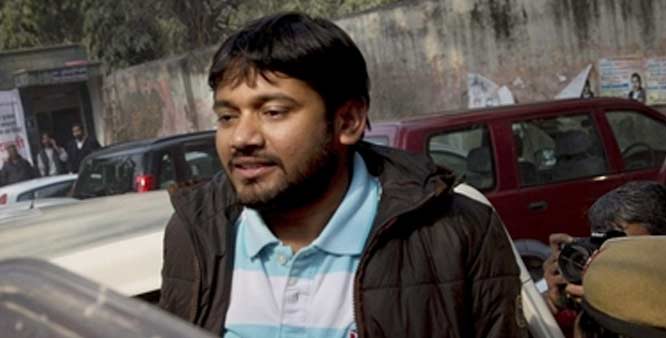This is a statement by over three hundred and fifty academics based in the UK.
We, the undersigned, stand in solidarity with the students, faculty, and staff of Jawaharlal Nehru University (JNU). We condemn the BJP government-sanctioned police action in the JNU campus and the illegal detention of the JNUSU President Kanhaiya Kumar. We strongly condemn the manner in which political dissent is being stifled, reducing academic spaces to fortresses. We also condemn the widespread witch-hunt of left-wing students and student groups that this police action has unleashed.
These recent acts are representative of the larger trend that we have been observing – the imposition of an authoritarian and regressive agenda in institutions of higher learning from Films and Television Institute [FTII], Hyderabad Central University [HCU] to Jawaharlal Nehru University [JNU]. From the institutional murder of HCU student, Rohith Vemula, and the suppression of student protests at FTII to the illegal detention of the student union leader Kanhaiya Kumar and pervasive police presence at JNU, there has been a constant non- observance and disregard of administrative and legal norms as well as a gross infringement of the democratic rights of the student community. These actions are embedded in a deeply chauvinistic cultural nationalism, which espouses a casteist and Brahmanical, homophobic, and patriarchal worldview.
We strongly believe that student politics is being targeted currently by giving a new lease of life to a sedition law that was a draconian tool in the hands of the colonial state and has no place in a democracy. It is our democratic right to dissent, disagree, organise and struggle against state, institutions or policies that transgress and suppress democratic and egalitarian values. Expression of dissent cannot and should not be equated with being ‘anti-national’ (or any other such constructed category) and is definitely not punishable under law especially if it is non-violent.
Disguising targeted assault on oppositional student groups/political movements within the narrative binaries of nationalism/anti nationalism only reflects how vulnerable the BJP government feels in its own ability to provide accountable governance.
We also believe that institutions of higher learning should be publicly funded spaces for political engagement, debates, and critical discussions – a legacy campuses (be it JNU, DU, or FTII) have embodied. As they always have, university spaces should subsidise costs of education for students, irrespective of the political disposition of the students. A rather disturbing feature of the narratives around this issue has been the construction and furthering of an artificial dichotomy between academics and politics that suggests that being ‘political’ is an aberration. This would certainly appear to be the case, if seen through the neoliberal lens of perceiving education as an industry that produces ‘semester bred’ automated ‘disciplined’ individuals who are mere consumers.
However, as the nonviolent expressions of dissent by students in JNU clearly demonstrate, contrary to this neo liberal view of academia,we believe that ‘personal is political’ and there is no sphere that is devoid of politics.We believe that good academic work necessarily involves a critical engagement with society and its power inequities and in that sense is always politically engaged. This engagement thrives in the democratic space of the university where many dissenting views can be heard and debated. The vilification of JNU as a space of ‘anti-national’ politics is being carried out by ABVP and BJP in order to attack and break this democratic spirit of academic and political life in Indian universities.
As teachers, students, scholars, and academics from the UK, who are keenly observing the developments unfolding in JNU, we express our solidarity with the students, faculty and staff of JNU as they non-violently resist this infringement on their rights. We urge the Vice Chancellor of JNU to uphold the institutional autonomy and the democratic rights of the student community. We also urge the government of India to stop encroaching on our rights as citizens, students, activists, political and politicised subjects.
- Akanksha Mehta, SOAS, University of London
- Priyanka Basu, SOAS, London
- Neha Vermani (JNU, 2013), Royal Holloway college, University of London
- Partha Pratim Shil, PhD student, Trinity College, University of Cambridge
- Niyati Sharma, University of Oxford
- Benarji Chakka, Chevening Scholar, SOAS, UoL
- Javed Wani, Department of History, Royal Holloway, University of London
- Chacko, University of London.
- Jay Lingham, SOAS, University of London
- Anjali B Datta, University of Cambridge
- Shinjini Das, University of Cambridge
- Jaice Sara Titus, Brunel University London
- William Rees, SOAS, (2015)
- Alex Wolfers PhD Researcher at Cambridge University
- Aditya Balasubramanian, University of Cambridge
- Mayur Suresh,
- Lipika Kamra, University of Oxford
- Sneha Krishnan, University of Oxford
- Prashant Kidambi, University of Leicester
- James Eastwoos (SOAS, University of London)
- Rohan Deb Roy, Lecturer in South Asian History, University of Reading
- Prerna Bhardwaj, King’s College London
- Tristan Burke (University of Manchester)
- Surabhi Ranganathan, University of Cambridge
- Sanya Samtani, University of Oxford
- Baisali Mohanty, Post-graduate candidate, contemporary south asian studies, University of Oxford
- Prithvi Hirani, Aberystwyth University
- Dr Lorenza Monaco, SOAS, University of London
- Suman Ghosh, Bath Spa University
- Nayanika Mathur, University of Cambridge
- Marie-France Courriol,UniversityofCambridge
- Jayesha Koushik, University of Oxford
- Aditya Ramesh, SOAS
- Umika Pidaparthy, University of Oxford
- Sruthi Muraleedharan, SOAS, University of London
- JD Brown, SOAS, London
- Sudarshana Srinivasan, King’s College London
- Wiktor Ostasz (University of Oxford)
- T Khaitan, University of Oxford
- Erica Wald, Goldsmiths, University of London
- Deepa Kurup, Oxford University
- Sanjoy Bhattacharya, University of York, UK
- Thomas Marois, SOAS, University of London
- Saba Hussain, University of Warwick
- FeyziIsmail,SOAS
- Joe Buckley, PhD candidate, SOAS, University of London
- Sandipto Dasgupta, Newton International Fellow of the Royal Society and the British Academy
- Annabelle Sreberny, Emeritus Professor, SOAS, University of London
- Sahil Warsi, University of Leeds
- Subir Sinha, Department of Development Studies, SOAS
- Sabiha Allouche, Centre for Gender Studies, SOAS, University of London
- Abhay Regulagedda – MIPLC
- Jaimie Johansson, University of East Anglia
- Shabnum Tejani, Senior Lecturer in Modern South Asian History, Department of History, SOAS, University of London
- Dr Kerem Nisancioglu, SOAS University of London
- Alfredo Saad Filho, SOAS University of London
- Arijeet Pal, University of Oxford
- Elisabeth Leake, Royal Holloway, University of London
- Musab Younis, Oxford University and SOAS
- Smitana Saikia King’s College London
- Dr Rahul S Gandhi BSc (Neuroscience) MBCHB, Member – Royal Australasian College of Physicians
- Sara Stevano, SOAS University of London
- Rachel Harrison, SOAS
- Jonathan Daniel Luther (SOAS)
- Abeera Khan, MA Gender Studies, SOAS
- Alexandra Tzirkoti, King’s College London
- Aditya Sarkar, Warwick University
- Teja Varma Pusapati, Phil Student in English, University of Oxford
- Secki Jose, PhD candidate, University of Leicester
- Shreya Sinha, SOAS, University of London
- Ashok Kumar, Queen Mary University of London
- Steven Martin, University of Cambridge
- Dr Helen Elsey, University of Leeds
- Dr Mandy Turner, Middle East Centre, LSE
- Zarah Sultana, NUS Black Students’ Campaign
- Nicholas Simcik Arese, University of Oxford
- DrAravindaGuntupalli,SeniorLecturerinPublicHealth,TheOpenUniversity,
- Milton Keynes, UK
- Lisa Tilley, University of Warwick
- Uttara Shahani, PhD Candidate, University of Cambridge
- Nadje Al-Ali SOAS
- Saumya Saxena, University of Cambridge
- Diya Gupta, Department of English, King’s College London
- John Wood Aberystwyth University
- Dimitra Kotouza, University of Kent
- Nilanjana Sen Graduate Student King’s College London
- Gerhard Kling, SOAS University of London
- Akhila Yechury, University of Andrews
- Professor Arshin Adib-Moghaddam, SOAS, University of London
- Rudra Sen (SOAS)
- Cam Stocks, Medical Student, Barts and The London School of Medicine
- Manjeet Ramgotra, SOAS University of London
- Juanita Elias, University of Warwick
- Sarah Gandee, University of Leeds
- Roy, SOAS
- Dr Richard Williams, University of Oxford
- Tom Cowan, King’s College London
- Layli Uddin, Royal Holloway
- Dr Sarah Hodges, History, University of Warwick
- Emma Hart, University of St Andrews
- Meenakshi Sinha, King’s India Institute, King’s College London
- Antonio Ferraz de Oliveira – University of Warwick
- Eve Tignol (Royal Holloway University of London)
- Ashwitha Jayakumar, MA student, University of Leeds
- Alastair McClure, PhD Student at the University of Cambridge
- Amir Khan – University of Cambridge
- Javier Moreno Zacarés, Warwick University
- Professor Stephen Hopgood, SOAS University of London
- Jordan Osserman, UCL
- Josh Holroyd, Socialist Appeal
- Ina Goel, Gender and Sexuality Studies, University College London
- Julian Benda, SOAS
- Ola Innset, European University Institute
- Nicole Beardsworth, University of Warwick
- Fatima Rajina, SOAS
- Karthikeyan Damodaran, University of Edinburgh
- Vanya V Bhargav, University of Oxford
- Meghna Nag Chowdhuri, University of Cambridge
- Ranjita Neogi, University of Reading
- Aparna John, Institute of Development Studies, University of Sussex
- Omar Raii, UCL
- Ashna Sarkar – UCL
- Garikoitz Gómez Alfaro, University of Brighton
- Tom Cunliffe, KCL
- Mihika Chatterjee, University of Oxford
- Kavita Maya (SOAS, University of London)
- Niharika Pandit, master’s candidate, SOAS
- Jonathan Saha, University of Leeds
- Farooq Graduate Teaching Asst. SOAS, London
- Shreya Agrawal, Student at UCL
- Malia Bouattia, NUS Black Students’ Officer (UK)
- Amogha Varsha (University of Oxford, UK)
- Amelia Bonea, University of Oxford
- Avinash Paliwal, King’s College London
- Amrita Shodhan, SOAS, University of London
- Jacob Bard-Rosenberg, Birkbeck College, University of London
- Laurence Gautier, University of Cambridge
- Smriti Sawkar, University of Oxford
- Arianna Tassinari (University of Warwick)
- Anindya Raychaudhuri, University of St Andrews
- Onaiza Drabu, University of Oxford
- Mipsie Marshall University of Sussex
- Amit Kumar, DPhil Chemistry, University of Oxford
- Ishan Mukherjee, University of Cambridge
- Urmimala Maitra, University of Oxford
- Sahil Nijhawan (Student, University College London)
- James Lecturer in Islamicate South Asia, SOAS, University of London
- Anirudh Mathur, Student, Inner Temple
- Maia Barkaia, (JNU, 2010),Research Fellow, LMH, Oxford University
- Sheiry Dhillon, DPhil OB/GYN (C) MD (C)
- Jacob George Pallath, GDL student at University of Westminster
- Sadie Coventry University
- Dr Nicholas Cimini, Lecturer and EIS-ULA Exec member at Edinburgh Napier University
- Leandro Vergara-Camus, SOAS, University of London
- Chandak Sengoopta, Professor of History, Birkbeck College, University of London
- Ozan Kamiloglu, Associate Lecturer, University of London, Birkbeck
- Selbi Jumayeva, Visiting Research Fellow, IGS at LMH University of Oxford
- Somak Biswas, University of Warwick
- Divya David, University of Oxford
- Mihika Chatterjee, University of Oxford
- Mishka Sinha, University of Cambridge, UK
- Emile Chabal, University of Edinburgh
- Radhika Govinda, University of Edinburgh
- Varun Ramesh – University of Oxford
- Nat Raha, University of Sussex
- David Dahlborn, UCL
- Lesley Hoggart, The Open University, UK
- Chinmay Sharma SOAS
- Sahil Kureshi, University of Oxford
- Leshu Torchin, University of St Andrews
- Ameya Kelkar-SOAS, London
- Ankita Pandey, Phil candidate, University of Oxford
- Sinthujan Varatharajah, UCL Geography
- Maanasa SOAS
- Dr Ghazala Mir, University of Leeds
- Deepa Kurup, University of Oxford
- Secki P Jose, University of Leicester
- Rashmi Varma, University of Warwick
- Sneha Menon, University of Oxford
- Yasser Shams Khan, University of Oxford
- Harry Stopes, University College London
- Nithya Natarajan, SOAS
- Dr Marika Rose, Durham University
- Mansi Sood, Student, University of Oxford, 2015-16
- Mukulika Banerjee, Director of LSE South Asia Centre and Associate Professor of Anthropology, LSE
- Fatima Shahzad, Postgraduate Student, SOAS, University of London
- Rodrigo Torres, UCL
- Kanika Sharma, Birkbeck, University of London
- Paavani Singh – King’s College London
- Mallika Leuzinger, University College London
- Kashish Madan, A. English Literary Studies, Durham University
- Grace Egan, University of Glasgow
- Joseph McQuade, University of Cambridge
- Amrita Lamba, SOAS
- Sarah Kunz – PhD student, UCL
- Shamim Zakaria, University of Sussex
- Rubina Jasani, University of Manchester
- Moiz Tundawala, PhD candidate, London School of Economics and Political
- Aditya Ray, Queen Mary University of London
- Rahul Rao, SOAS, University of London
- Dr Lee Jones, Queen Mary University of London
- Manish Kushwaha, University of Warwick
- Kalpana Wilson, London School of Economics and Political Science
- Daniela Lainez del Pozo – University College London
- Praveen Priyadarshi, PhD Candidate, London School of Economics
- Anju Christine, King’s College London
- Amogha Varsha (University of Oxford)
- Ashutosh Kumar, University of Leeds, UK
- neha kagal, Doctoral Scholar, SOAS
- Dr Hannah Boast, University of York
- Phiroze Vasunia, University College London
- Saawani Raje, King’s College London
- Sanghita Sen, University of Andrews. Scotland
- Dr Rohit K Dasgupta (WSA), University of Southampton
- Utsa Mukherjee, Royal Holloway
- Senjuti Chakraborti, Birkbeck College, University of London
- Aakshi Magazine, University Of St Andrews
- Souraj Dutta, Research student, University of St Andrews, Scotland
- Megan Robb, University of Oxford
- Andrew Kinnell, President of Stirling Students Union
- Grant Buttars, University of Edinburgh
- Johannes Makar, student at SOAS and KU Leuven
- Dr Anandi Ramamurthy, Sheffield Hallam University
- Anish Vanaik, Purdue University (Oxford, 2013)
- Akshyeta Suryanarayan, University of Cambridge
- Eleanor Newbigin, SOAS, University of London
- Rubina Jasani, University of Manchester
- Siddharth Chawla, Cambridge University
- Dimble Mathew University of Bradford
- Kshiti Gala, SOAS, University of London
- Bjorn Berntson, University College London
- Sreenanti Banerjee, Birkbeck, University of London
- Pori Saikia University of Essex
- James Harland (Department of History, University of York)
- Kanwar Nain Singh, University of Cambridge
- Ayça Çubukçu, Assistant Professor in Human Rights, London School of Economics and Political Science
- Dr Satoshi Miyamura, SOAS, University of London
- Kyle Jordan (UCL)
- Gautam Bondada, Phil student, University of Oxford
- Tom Robinson, UCLU Welfare & International Officer
- Ettore Morelli, School of Oriental and African Studies
- Dr Jayasree Kalathil, Survivor Research, UK
- Tvisha Nevatia, LSE
- Karin Sjöstedt, SOAS
- Joya Chatterji, University of Cambridge
- Dr Peter Dwyer, Ruskin College, Oxford
- Dr Chris Rossdale, University of Warwick
- Rama Dieng, SOAS
- Anish Augustine, Queen Mary, University of London
- Sofa Gradin, Queen Mary University of London
- Nandini Maharaj, Sheffield Hallam University
- Shivangi Pareek, University of Cambridge
- Shubranshu Mishra, University of Kent
- Ritanjan Das, University of Portsmouth
- Ananya Rao-Middleton, University of Cambridge
- Ganga Shreedhar, London School of Economics
- Swapna Kona Nayudu, LSE
- Elizabeth Frazer, Head of Department, Politics and International Relations, University of Oxford
- Dr William McEvoy, University of Sussex, UK
- William Gould, University of Leeds
- Marta Garcia Aliaga (SOAS, University of London, and NALSAR)
- Ayse Zarakol, University of Cambridge
- Prof Gurminder K Bhambra, University of Warwick
- Lisa Skwirblies, D. Candidate (University of Warwick)
- Louiza Odysseos, University of Sussex
- Alex Anievas, University of Cambridge
- Dr Meera Sabaratnam, SOAS
- Kirsten Forkert, School of Media, Birmingham City University
- Eda Ulus, University of Leicester
- Premalatha Balan, University of Nottingham and University College, London
- Adelie Chevee, SOAS, University of London
- Manishita Dass, Royal Holloway (University of London)
- Rosalind Galt, King’s College London
- Priyasha Mukhopadhyay, Oxford
- Rod Earle, Dept of Health & Social Care, The Open University
- Caoimhe Mader McGuinness, Queen Mary University of London
- Julie Dayot University of Oxford
- Sai Englert, PhD candidate, SOAS, University of London
- Sonali Campion, London School of Economics
- Dr Cathy Bergin, University of Brighton
- Aditya, University of Oxford
- Akshi Singh, Queen Mary, University of London
- Karan Katoch, University of Oxford
- Raghav Kishore, University of Huddersfield
- Dr Tanvi Pate, PAIS, University of Warwick
- Dr Bhabani Shankar Nayak, University of Salford, UK
- Konrad M Lawson (Lecturer St Andrews)
- Professor Emilia Jamroziak, University of Leeds
- Anwesha Sengupta, University of Oxford
- Andy Rixon The Open University UK
- Natalie James, UCLU
- Mirna Guha, PhD School of International Development, University of East Anglia
- Sita Balani King’s College London
- Steffan Blayney, Birkbeck, University of London
- Mehroosh Tak, SOAS
- Tanya Singh, University of Wolverhampton
- Kathryn Maude, Swansea University
- Hilary Aked, University of Bath
- S.V.P. Capildeo, Affiliate, St. John’s College, University of Cambridge
- Katy Sian, University of York
- S Lidher (Cambridge)
- Paul Kirby, University of Sussex
- Gayathri Sekhar, King’s College London
- Marijn Nieuwenhuis, Politics and Int. Studies, University of Warwick
- Lorena Lombardozzi (SOAS)
- Alen Toplisek, Queen Mary University of London
- Owen Clayton, University of Lincoln, UK
- Dr Terese Jonsson, University of Portsmuth
- Alexandra Sporidou Nottingham Trend University
- Professor Azrini Wahidin, Nottingham Trent University
- Janhavi Mittal, King’s College London
- Špela Drnovšek Zorko, SOAS, London
- Aapurv Jain, SOAS, University of London
- Noelle Richardson
- Vicki Baars
- Abhilasha Joshi, DPhil Neuroscience
- Fuad Ali, OtherAsias
- Miqdad
- Zara Kayani
- Jack Bardsley
- Joel White
- Pallavi Roy
- Vinayak Raj Gathoria
- Suchitra Sebastian
- Shariq
- Debanjali Biswas
- Umer Malik
- sabahat ijaz
- Sharon Mallon
- Arushi Menon
- Kaushik Banerjee
- Saumya Singh
- Sophie Mayer (independent scholar)
- Zara Qadeer
- Darshana Gurung
- Sahiba student masters
- Nihad Ahmed
- Nasir Arafat
- Shreya Chatterjee
- Edyth Parker
- Sinjini Chatterjee, student
- Daniel Ong
- Sunny Singh
- Ritika Bose
- Sanaz Raji, Independent Research & Campaigner
- Sameen Ali
- Shruti Sekhar Ravindran
- Shamira Meghani — scholar and teacher
- Leon Sealey-Huggins
- Neeharika Shetty
- Abhishikta Mallick
- Lakshmy Venkatesh
- Owen Clayton, University of Lincoln, UK
- Dr Terese Jonsson, University of Portsmuth
- Alexandra Sporidou Nottingham Trend University
- Professor Azrini Wahidin, Nottingham Trent University
- Janhavi Mittal, King’s College London
- Špela Drnovšek Zorko, SOAS
- Aapurv Jain, SOAS, University of London
- Laura Schwartz, University of Warwick
- Deepa Kurup, University of Oxford
- Gopal Balakrishnan
- Arwa Awan, Visiting Undergrad, University of Oxford
- Matthew Cole, University of Leeds
- Nikita S.
- Mohamed Hussain


.jpg)
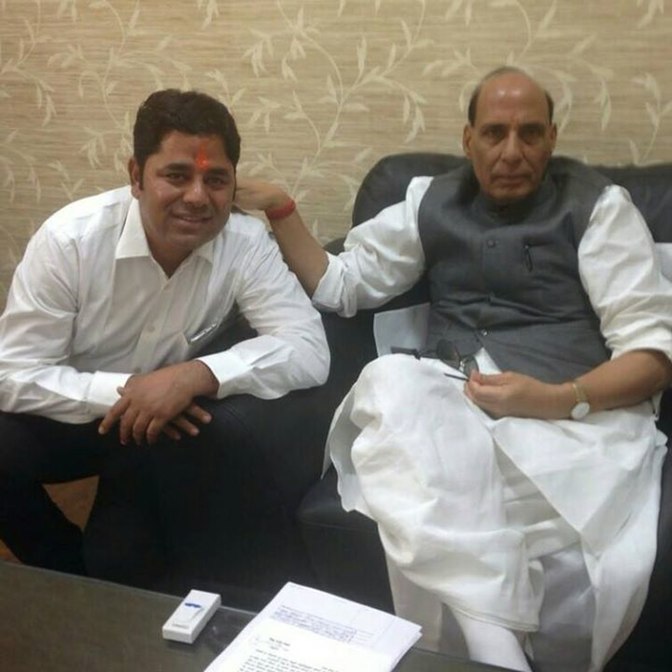
.jpg)
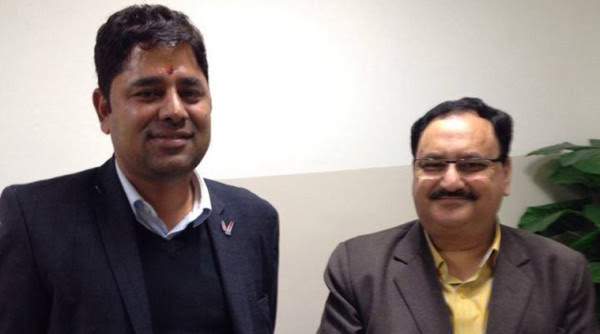
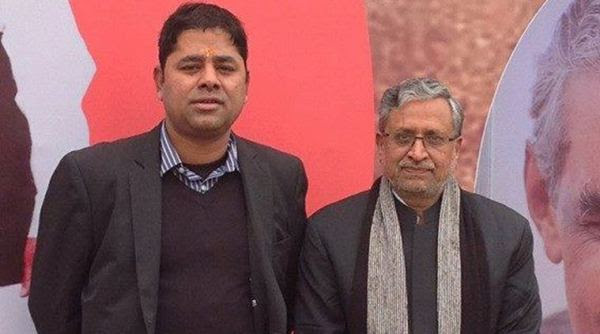
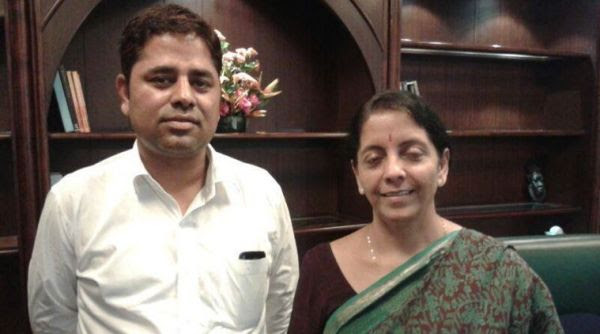
.jpeg)
